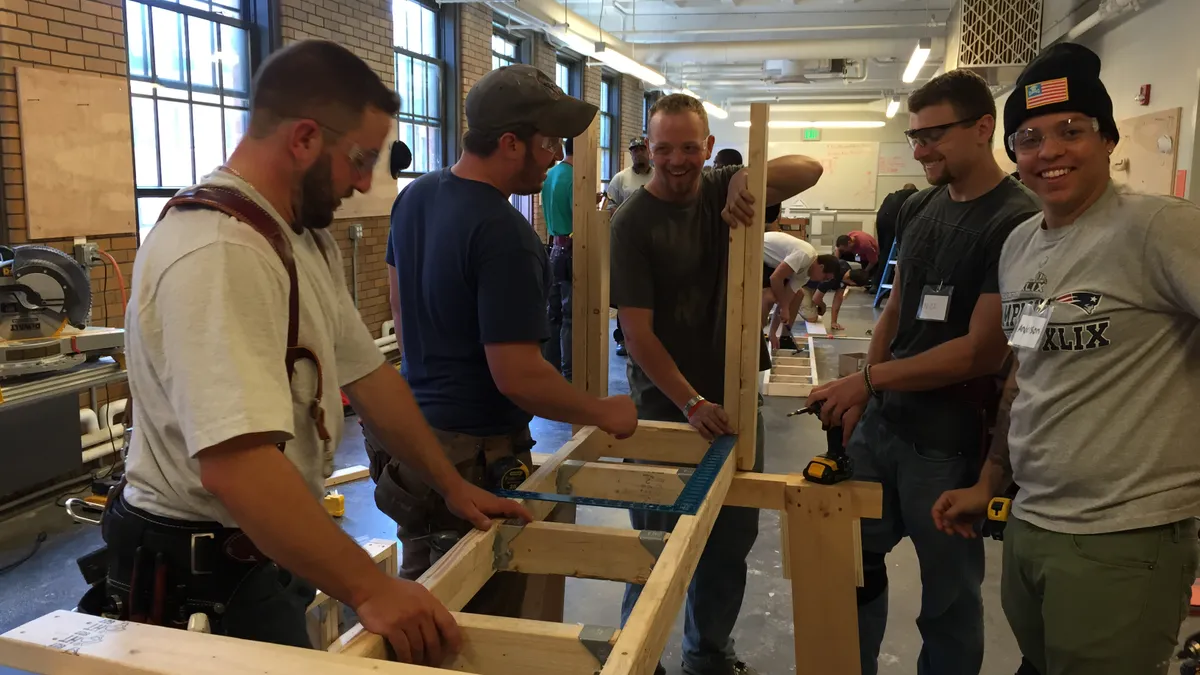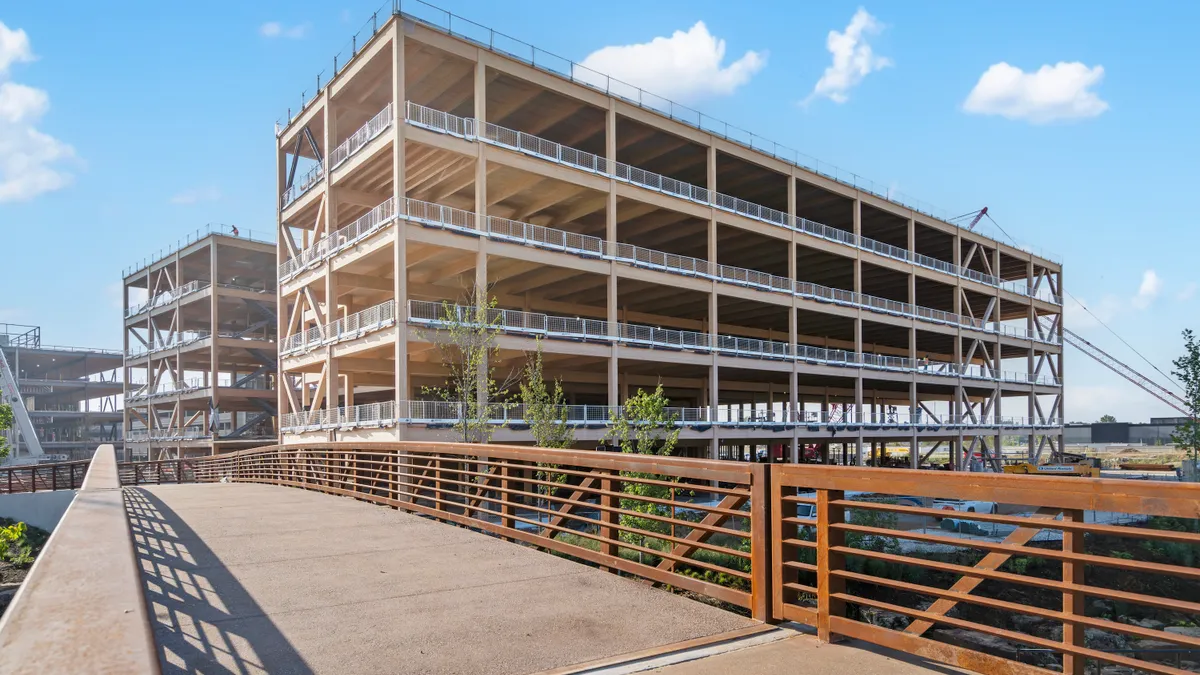Rob O'Dwyer doesn't think of his position as Director of Admissions and Student Success at the North Bennet Street School (NBSS) in Boston as a job but something more akin to a vocation. The 135-year-old school, which focuses on adult career education, boasts a 20% enrollment of veterans, giving O'Dwyer "skin in the game" as he said his father is a disabled Vietnam veteran.
According to a U.S. Department of Veterans Affairs May 2016 report, most veterans secured jobs in management, sales or some other administrative position, but only a small percentage chose the construction trades. However, there is a much-publicized shortage of skilled construction labor in this country, with almost every industry poll or survey reporting that employers' are worried most about finding enough employees. Combine that with the fact that Post-9/11 veteran population is expected to increase 46% from 2014 levels by 2019, and it's starting to look like a perfect match.
Unlike many other training programs, NBSS offers apprenticeship-level training in cabinetry, carpentry, furniture making and preservation carpentry. These are trades, he said, with more of a slant toward craftsmanship and artistry. All programs take from nine months to 18 months to complete, and O'Dwyer said students with full military education benefits often take more than one program. Preservation carpentry, in particular, he said, has become an industry "niche" that has grown over the last few decades. "We're one of about seven schools in the nation that focuses on it, and I think we're probably the oldest," he said. What makes the NBSS program so popular, however, is that it has a reputation for producing well-trained graduates – a bonus when it comes to job hunting after graduation.
Like other construction training tailored to veterans, students come from a variety of sources – word of mouth by former students, social media, information from a veterans organization and even as a result of a student's own investigation. O'Dwyer said his students come from the Boston area, and also have the benefit of being in close proximity to several veteran service organizations. In contrast, Helmets to Hardhats, which connects veterans nationwide to various training, apprenticeship and employment opportunities, is the way some former servicemen and women end up as apprentices in a popular, well paid five-year program offered by Steamfitters Local 638 in Long Island City, NY.
In addition to the career and skill-development opportunities, the vast majority of training program leaders are convinced that military experience provides the perfect background for a career in construction for a few reasons. Military training, said Darrell Roberts, executive director of Helmets to Hardhats and also a veteran who has worked in construction, prepares individuals to be problem solvers and adapt to often fluid jobsite conditions. "These times can bring challenges to the jobsite and, speaking as a veteran, I enjoyed the challenge."
Construction training, Steamfitters Local 638 Patrick Dolan said, is also an opportunity for former military members to be "reintegrated into the civilian workforce that offers familiar values of discipline, teamwork and camaraderie. Some of our union’s most productive workers have entered through this program, and we’re honored to give back by providing them with significant job training and opportunities, fair wages, medical benefits and pensions to help them support themselves and their families.”
The only challenges he's seen his students face as a result of being in the military, O'Dwyer said, are related to the transition back to civilian life, something every veteran must face. NBSS, however, has onsite veteran support, and, O'Dwyer said, if a student needs something the school can't provide, he knows where to refer them. Another advantage of getting into a training program, either at NBSS or elsewhere, he said, is that the student immediately has a focus and a way to occupy his or her time, which can be a great reliever of stress.
It's not a coincidence, O'Dwyer said, that his programs see a high number of formerly deployed and frontline veterans. "I think that they're attracted to the construction programs here because it's good, honest work and because it's also cathartic and therapeutic." Many students enjoy the steadiness and predictability of creating something that will last – something useful – in the midst of a world that can be extremely chaotic at times, he said.
After the training is over, O'Dwyer said, NBSS actively pursues job placement for its students, currently 85% within six months of graduation. In his last carpentry class, he said, of the nine veterans who graduated, seven have jobs and two decided to continue with their education. For those who finish the apprenticeship program, said Local 638 spokesperson Kaylyn Alexander, they are then considered journeymen.
So who pays for all of this? Military education benefits range from the Post-9/11, GI Bill, Montgomery GI Bill and various tuition programs that help pay for 100% of school or a portion of it. Because the Steamfitters Local 638 is a federally approved program, students, Alexander said, can access their Montgomery GI Bill benefits, but the union also invests approximately $100,000 per enrollee, and Dolan said the program also receives funding from the Mechanical Contractors Association of New York.
But the bottom line? The goal of all of these programs is to prevent veterans from falling through the cracks and help smooth their transformation back into being a civilian. "We want them to be able to make an informed decision," Roberts said. "This helps to avoid confusion and wasted time that the veterans may be on unemployment. We stay up to date on benefits and transfer that information to the veteran. We work with the best apprenticeship programs in the country, so the veterans land with a quality career."
For more information on veteran training programs:
888-GIBILL-1
[email protected] 617-227-0155
866-741-6210 (Offices Nationwide)



















